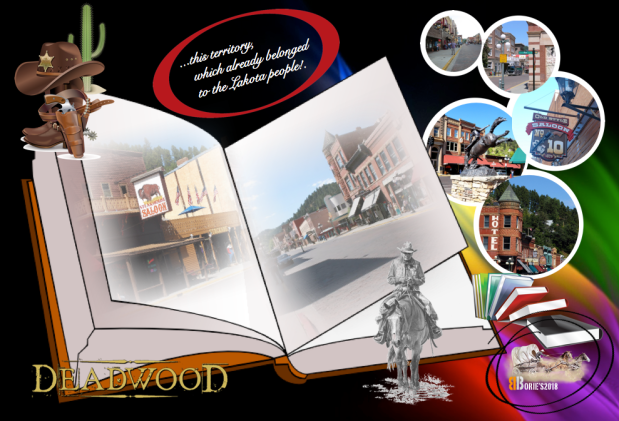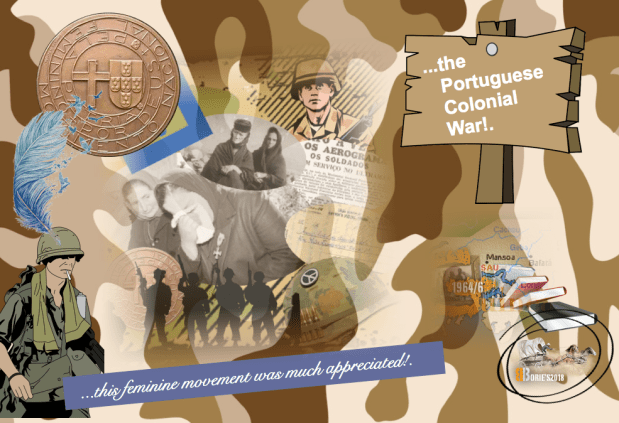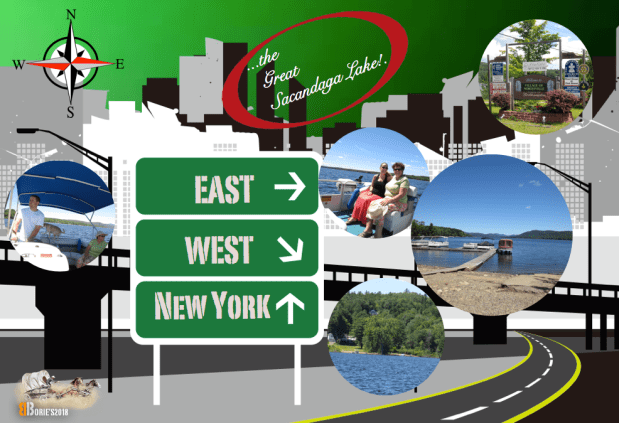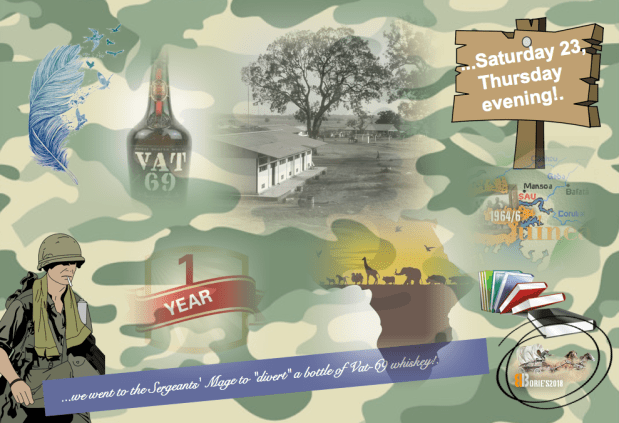…Cavalo Louco!. (Crazy Horse)!.
…ainda nas Colinas Negras, viajando algumas milhas para oeste estávamos com uma certa curiosidade em admirar o Crazy Horse Memorial (Memorial do Cavalo Louco), um complexo de monumentos de montanha, que está em construção em terras privadas nas Colinas Negras, no condado de Custer, que é a maior escultura do mundo em andamento!. (still in the Black Hills, traveling a few miles west we were curious to admire the Crazy Horse Memorial, a complex of mountain monuments, which is under construction on private grounds in the Black Hills, Custer County, which is the largest sculpture in the world in progress)!.
…algumas horas antes, em Monte Rushmore, assistindo a um vídeo explicando a construção da escultura na montanha, dos quatro Presidentes dos Estados Unidos, diziam-nos que passavam as manhãs colocando dinamite, detonando as explosões ao meio-dia e limpando o resultado dessas explosões pela tarde!. Aqui, quando chegámos, passava pouco tempo do meio-dia, como estavam as esculturas em andamento na montanha, não ouvimos nenhuma explosão, ficando nós com a sensação de que aparentemente as explosões por aqui não devem de ser muito bem coreografadas!. (a few hours earlier, in Mount Rushmore, watching a video explaining the construction of the sculpture on the mountain, of the four Presidents of the United States, told us that they spent the mornings putting dynamite, detonating the bursts at noon, result of these explosions in the afternoon!. Here, when we arrived, little time passed around noon, as the sculptures were in progress on the mountain, we heard no explosion, leaving us with the feeling that apparently the explosions here should not be very well choreographed)!.
…não havendo explosões na montanha, só nos tornou mais tranquilos, pois derivado ao nosso passado de combatentes na Guerra Colonial Portuguesa em África, não admiramos explosões, pelo contrário, adoramos paz!. (not having explosions on the mountain, only made us more tranquil, because derived from our past combatants in the Portuguese Colonial War in Africa, we do not admire explosions, on the contrary, we love peace)!.
…este memorial consiste numa escultura na montanha, que retrata Crazy Horse (Cavalo Louco), um guerreiro Oglala Lakota, montando um cavalo e apontando para a distância em sua frente, um Museu de artefactos de Índios da América do Norte e num Centro Cultural Nativo Americano!. O monumento está a ser esculpido na Montanha Thunderhead, terra considerada sagrada por alguns Oglala Lakota, situado entre Custer e Hill City, a umas milhas de distância de Monte Rushmore!. (this memorial consists of a mountain sculpture depicting Crazy Horse, an Oglala Lakota warrior, riding a horse and pointing the distance in front of him, a North American Indian Museum of Art and a Center Cultural Native American!. The monument is being carved into Thunderhead Mountain, a land considered sacred by some Lakota Oglala, situated between Custer and Hill City, a few miles away from Mount Rushmore)!.
…cremos que tudo começou por volta do ano de 1939, quando Henry Standing Bear, (Henry Urso em Pé), escreveu ao escultor Polaco-Americano, Korczak Ziolkowski, que trabalhou na escultura do Monte Rushmore, informando o escultor de: “Meus colegas chefes e eu, gostaríamos que o homem branco soubesse que, o homem vermelho tem grandes heróis também”!. Na mesma ocasião, também escreveu uma carta ao secretário Oscar Chapman, do Departamento do Interior, oferecendo todos os seus 900 acres, (365 ha) e terra fértil, em troca da montanha estéril, com a finalidade de prestar homenagem ao Crazy Horse!. (we believe it all began around 1939 when Henry Standing Bear wrote to the Polish-American sculptor, Korczak Ziolkowski, who worked on the Mount Rushmore sculpture, informing the sculptor of ” My fellow chiefs and I, we would like the white man to know that, the red man has great heroes too”!. At the same time, he also wrote a letter to Secretary Oscar Chapman of the Department of the Interior, offering all of his 900 acres (365 ha) and fertile land in exchange for the barren mountain, in order to pay tribute to Crazy Horse)!.
…um ano depois, Ziolkowski passou algum tempo com Henry Standing Bear, (Henry Urso em Pé), em Dakota do Sul, discutindo questões de propriedade da terra e aprendendo sobre quem foi Crazy Horse, (Cavalo Louco) e o seu modo de vida!. Nessa ocasião, de acordo com Ziolkowski, Standing Bear, (Urso em Pé), ficou muito bravo quando falou do Tratado de Forte Laramie, por volta do ano de 1868, dizendo: “Sobre o que o presidente me prometeu, que as Colinas Negras pertenciam aos Índios para sempre”!. Ziolkowski, prosseguindo diz que se lembra como os seus velhos olhos brilharam naquele rosto escuro de mogno, sacudindo a cabeça, ficando em silêncio por um longo tempo!. (a year later, Ziolkowski spent some time with Henry Standing Bear, in South Dakota, discussing land ownership issues and learning about who Crazy Horse was, and his way of life!. On that occasion, according to Ziolkowski, Standing Bear, he became very angry when he spoke of the Treaty of Fort Laramie, around the year 1868, saying: “What the President has promised me, that the Black Hills belonged to the Indians forever”!. Ziolkowski goes on to say that he remembers how his old eyes flashed on that dark mahogany face, shaking his head, being silent for a long time!
…o monumento a Crazy Horse (Cavalo Louco), está em andamento, desde o ano de 1948, longe de ser concluído, todavia ao ser concluído, vai tornar-se na maior escultura do mundo, cujas dimensões finais estão planejadas para terem 641 pés de largura e 563 pés de altura!. Este memorial foi encomendado por Henry Standing Bear, (Henry Urso em Pé), um ancião da tribo Lakota, a ser esculpido por Korczak Ziolkowski, sendo operado pela Crazy Horse Memorial Foundation, uma organização privada, sem fins lucrativos!. (the monument to Crazy Horse, has been under way since 1948, far from being completed, but when completed, it will become the largest sculpture in the world whose final dimensions are planned to have 641 feet wide and 563 feet high!. This memorial was commissioned by Henry Standing Bear, an elder of the Lakota tribe, to be carved by Korczak Ziolkowski, being operated by the Crazy Horse Memorial Foundation, a private, nonprofit organization)!.
…Crazy Horse, (Cavalo Louco), era um líder de guerra Nativo Americano, da tribo Oglala Lakota, que pegou em armas contra o governo federal dos USA, lutando contra invasões dos territórios e no modo de vida do povo Lakota, liderou um grupo de guerra para a victória na Batalha de Little Bighorn, em junho de 1876!. Todavia, depois de se render às tropas Americanas sob o comando do General Crook, em 1877, Crazy Horse foi fatalmente ferido por um guarda militar, enquanto supostamente resistia à prisão, no Campo de Robinson, no actual Nebraska!. (Crazy Horse, a Native American warlord, from the Oglala Lakota tribe, who took up arms against the US federal government, fighting against invasions of the territories and on the way of life of the Lakota people, led a war group for the victory at the Battle of Little Bighorn in June 1876!. However, after surrendering to American troops under General Crook in 1877, Crazy Horse was fatally wounded by a military guard while allegedly resisting arrest at Robinson Field in present-day Nebraska)!.
…visitámos o Museu, que inclui os estúdios do escultor, onde ao lado, existe o que pensamos ser a sua casa oficina, onde Korczak, talvez necessitasse de algo para fazer durante os invernos frios em Dakota do Sul, em que não podia trabalhar na montanha, onde se encontram várias peças, que talvez fossem modelos, em tamanho reduzido!. (we visited the Museum which includes the sculptor’s studios, where beside it there is what we think is his workshop home where Korczak might need something to do during the cold winters in South Dakota where he could not to work on the mountain, where are several pieces, that perhaps were models, in reduced size)!.
…no Museu, vimos várias pessoas trabalhando, fazendo diversas peças de artesanato, e nós, querendo ajudar comprámos uma Seta dos Sioux, peça muito bem feita, embora vendida por um preço excessivo, mas a nossa intenção era ajudar, no entanto existe alguma controvérsia, não só com a aplicação dos fundos realizados, como na construção deste monumento!. (in the Museum, we saw several people working, making various pieces of handicraft, and we, wanting to help, bought a Sioux Arrow, a very well made piece, although sold for an excessive price, but our intention was to help, some controversy, not only with the application of the funds made, but also in the construction of this monument)!.
…Crazy Horse, (Cavalo Louco), resistiu sempre a ser fotografado, foi deliberadamente enterrado onde o seu túmulo não poderia ser encontrado. O escultor imaginou o monumento como uma homenagem metafórica ao espírito do Crazy Horse (Cavalo Louco), e dos Nativos Americanos, pois ele teria dito: “As minhas terras são onde os meus mortos estão enterrados”!. A sua mão estendida no monumento simboliza essa afirmação!. (Crazy Horse, always resisted being photographed, was deliberately buried where his grave could not be found. The sculptor imagined the monument as a metaphorical tribute to the spirit of the Crazy Horse, and of the Native Americans, for he would have said, “My lands are where my dead are buried!” His outstretched hand on the monument symbolizes this statement)!.
…continuando com a controvérsia, uma senhora Lakota, descendente de uma das tias de Crazy Horse (Cavalo Louco), disse: “nunca se deveria construir este memorial, pois a nossa cultura Lakota, não dá permissão para alguém esculpir as sagradas Colinas Negras, onde estão os nossos cemitérios. Eles estão lá para orarmos, não foi feito para ser esculpido com imagens, isto é muito errado para nós, quando penso nisto, é uma profanação da nossa cultura de Índios Lakota, não apenas de Crazy Horse, (Cavalo Louco), mas para todos nós”!. (continuing the controversy, a Lakota lady, a descendant of one of Crazy Horse’s aunts, said: “We should never build this memorial, because our Lakota culture does not give anyone permission to carve the sacred Black Hills where our graveyards are. They are there to pray, it was not meant to be carved with images, that is very wrong for us, when I think of it, it is a desecration of our Lakota Indian culture, not just Crazy Horse, but for all of us!”)!.
…outra senhora Lakota, cuja bisavó era tia de Crazy Horse, (Cavalo Louco), disse: “pergunto-me sobre os milhões de dólares que a família do escultor está a colectar no centro de visitantes e nas lojas associadas ao memorial, a quantidade de dinheiro que está sendo gerada pela herança de um nosso ancestral”!. Outro descendente disse: “Têm liberdade para tentar assumir o nome e ganhar dinheiro com isso, enquanto estiverem vivos e, quando você começa a ganhar dinheiro ao invés de tentar completar o projecto, é quando, para mim, está indo na direcção errada”!. Ainda outro, um “homem da medicina” descendente da tribo Lakota, disse: “A ideia de transformar uma bela montanha selvagem em uma estátua do Crazy Horse (Cavalo Louco), é uma poluição da paisagem, é contra o espírito do Crazy Horse, (Cavalo Louco)”!. (another Lakota lady, whose great-grandmother was Crazy Horse’s aunt, said: “I wonder about the millions of dollars that the sculptor’s family is collecting at the visitor center and at the memorial stores, the amount of money being generated by the inheritance of our ancestor”!. Another descendant said: “You are free to try to take the name and make money from it while you are alive, and when you start making money instead of trying to complete the project, that is when, for me, you are going in the wrong direction”!. Still another, a “medicine man” descended from the Lakota tribe, said: “The idea of turning a beautiful wild mountain into a statue of Crazy Horse, is a pollution of the landscape, it is against the spirit of Crazy Horse, (Crazy Horse)”!.
…de todas as controvérsias, algumas baseiam-se em que todo este memorial, é um trabalho e sustento de família, (nós, acreditamos na boa vontade e dedicação das pessoas, portanto não compreendemos muitas destas controvérsias), no entanto depois de que Ziolkowski morreu, no ano de 1982, aos 74 anos, a sua viúva Ruth, assumiu a escultura, supervisionando o trabalho neste projecto como chefe, desde a década de 1980 a 2010. Decidiu focar-se na conclusão do rosto de Crazy Horse, (Cavalo Louco), primeiro, em vez do cavalo, como o seu marido planeara originalmente!. Ela acreditava que o rosto de Crazy Horse (Cavalo Louco), uma vez concluído, aumentaria a fama da escultura como atracção turística, que iria proporcionar um financiamento adicional!. Quando ela supervisionou toda a equipa, incluiam os seus sete filhos!. A Ruth, faleceu no ano de 2014, aos 87 anos, a sua filha Monique, tornou-se chefe, continuando trabalhando no projecto com três dos seus filhos, além de mais três sobrinhos seus!. (of all controversies, some are based on the fact that all this memorial is a work and family support, (we believe in the good will and dedication of the people, therefore we do not understand many of these controversies), however after which Ziolkowski died in 1982 at age 74, his widow Ruth, took over the sculpture, supervising the work on this project as head, from the decade of 1980 to 2010. Decided to focus on the completion of Crazy Horse’s face, (Crazy Horse) first, instead of the horse, as her husband originally planned!. She believed that the face of Crazy Horse, once completed, would increase the fame of the sculpture as tourist attraction, which would provide additional funding!. When she oversaw the entire team, they included her seven children! Ruth, died in 2014, at age 87, her daughter Monique became chief, continuing to work on the project with three of her children, plus three more of her nephews)!.
…nós fazemos parte de mais de um milhão de visitantes ao ano, onde pagámos um bilhete, algo excessivo para ver uma obra, que está muito, mesmo muito longe de estar acabada, onde, segundo nos disseram outros visitantes, que já por aqui passaram por diversas vezes, que apreciando o cenário, só as formação das nuvens é que estão diferentes, no entanto, apreciámos toda a área envolvente, com destaque para o programa de Dança Nativa, executado por alguns homens, mulheres, rapazes e raparigas, descendentes da tribo Lakota Sioux!. (we are part of more than a million visitors a year, where we paid a ticket, something excessive to see a work, which is very, very far from being finished, where, according to other visitors, here they have passed by several times, that appreciating the scenery, only the formation of the clouds is different, however, we enjoyed the whole area, especially the Native Dance program, performed by some men, women, boys and girls, descendants of the Lakota Sioux)!.
Tony Borie, April 2018.

















































































































